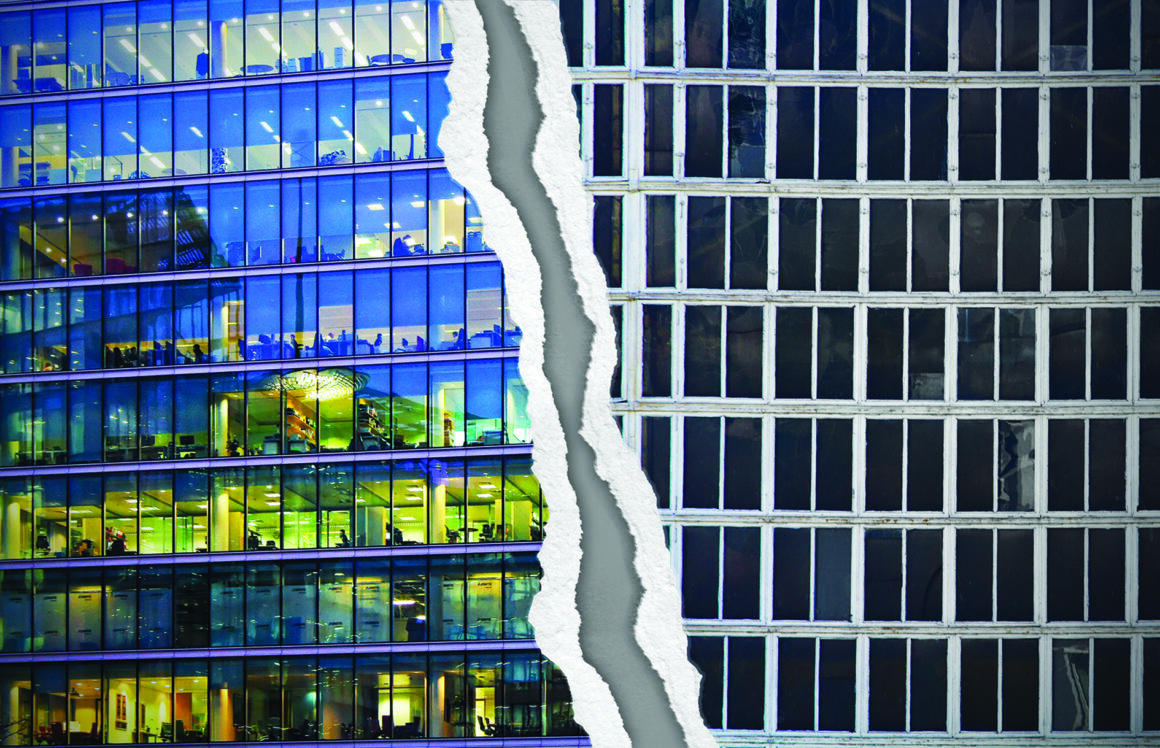By Jonathan Diebold
Capitalism, some say, is the most efficient economic system in human history, apparently because it can respond to consumer demands quickly. It might be worth introducing such people to the housing crisis in Ireland, where the system has responded to the urgent demand for more housing with the construction of acres upon acres of unusable commercial office space.
According to an analysis by BNP Paribas Real Estate Ireland, Dublin alone is predicted to be oversupplied by 250,000 square metres of office space by next year, much of which is currently under construction despite the low demand. According to a report by proprietary consultancy firm HWBC, there’s a total of 334,450 square metres of office space under construction in the city, three-fifths of which have no future tenants lined up.
Nowhere to live
The entire market has a vacancy rate of 16%. This is a sharp contrast to the residential sector – a survey of landlords by the RTB in 2022 estimated the vacancy rate in rental properties in Ireland to be around 1%! According to a 2022 Revenue report, this rises to 3.2% when including properties for sale as well.
The Irish Times, in writing about the phenomenon of empty office space this month, found there were only 330 rental properties on Daft.ie in Dublin city centre postcodes. For every one of these postings, many of which are studio apartments, student accommodations, or bedsits, over 1,000 square metres of offices are being built in the city, a large majority of which are destined to be vacant. 78,000 office jobs need to be created to fill these vacancies – an impossible task without tens of thousands of new places for people to live.
Seize vacant property
The solution is so glaringly obvious that a child could come up with it. The for-profit construction sector is building too many office spaces and needs more housing. With a downturn in the world economy, a fall in multinational investment, rising interest rates and more people working from home, vacancies will likely remain high.
Vacant offices that are wasting space could be seized from their private owners and repurposed. A recent 18-month study by Shay Cleary Architects found such conversions increasingly viable, based on the cost of converting and the falling value of office buildings. The state could use such new conversation to provide people with public homes to rent or buy. We cannot allow such a criminal waste of space to continue while the housing crisis continually deepens.












